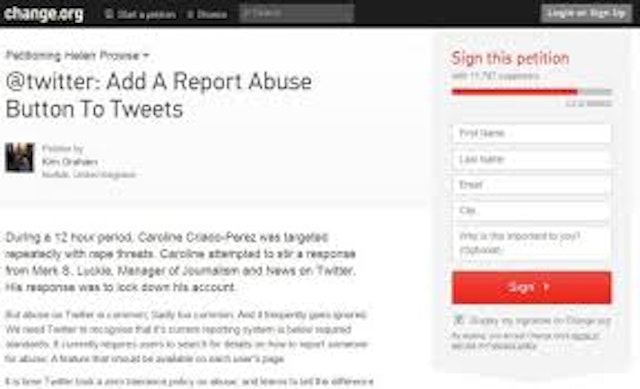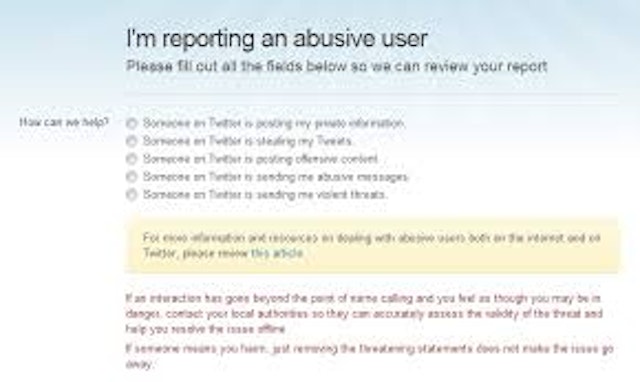Twitter's Report Abuse policy, announced this week after a feminist campaigner received rape threats, may be responsive to a short-term issue, but could fundamentally alter the way we use Twitter.
What happens when a successful feminist campaigner wins a battle to keep a woman on the £5 note? She becomes the victim of online abuse and targeted messages threatening rape and death. What happens when aforementioned feminist begins online campaign to raise awareness about the rape threats? Rather predictably that feminist attracts attention from supporters, other feminists, and, of course, other trolls. The resulting weekend campaign against Twitter for the 'poor response' to the 'hundreds of rape threats' has started a national dialogue about what it means to be offended and what Twitter, a platform that handles about 500,000,000 tweets every single day should do about it. Largely split across three camps – regulate, don't regulate, and can't regulate, the dialogue has focussed on what tools Twitter should provide its users who feel they have suffered abuse. This has been driven by the 66,000 signatures petitioning Twitter to install a new service. Twitter does provide a way to report abuse, but it’s not obvious on the site. The option is, however, buried on its support page. One of the reasons why a clear button on every page might not already exist is because it takes a lot of resources to run a customer service line for issues like these. After the weekend, the aforementioned feminist and freelance journalist, Caroline Criado-Perez, can now add two successful campaigns to her CV. One is the laudable and important retention of a woman on British currency. The other campaign may prove to be not so laudable: giving Twitter’s hundreds of millions of users who suffer perceived abuse on twitter a new way of reporting it.
But wait. Is the number of people who suffer abuse really in the millions? In 2012, a report titled, 'Hate crime, cyber-security and the experience of crime among children' was published by the Home Office. The numbers come from a 2010/11 Crime Survey and asked users over the age of 16 about their experiences online. Just 2 per cent of all internet users said they had experienced abusive/threatening behavior in the past year - although that number was significantly higher for young people - 6 per cent of women aged 16-24 and 5 per cent of men aged 16-24. This means that the problem isn’t significant as some people would make out. Considering the sheer volume of tweets send across the platform, even a 0.01 abuse rate would mean Twitter has to review 50,000 separate tweets each day for abuse. I wouldn’t wish that on any customer service department. Now some will say these numbers are very low and don't tally with what we all know to be true. Last year, statistics were released by 29 UK police forces after a freedom of information request showing about alleged crimes linked to the use of Facebook and Twitter had increased by 780% in four years, resulting in about 650 people being charged in 2011 and 2012. There were 4,908 reports in which Facebook or Twitter were a factor. This means that roughly only 8% of all complaints to the police were deemed in the public interest to charge with a crime. After this weekend's events, coupled with Twitter's response that they would indeed provide users a more visible function where users can report abuse, then expect that the dynamics of what makes twitter a great platform might change for the better and worse. Will there be consequences for those who report abuse inappropriately? Or when groups report abuse of speech they simply don’t like? What about situations where people use words like 'negro', 'cockchafer', 'horehound' and 'niggardly' in a tweet and accused of being offensive? Do they have recourse against the reporter's ignorance of the English language? That is because millions of Twitter users would find real offence in that.


